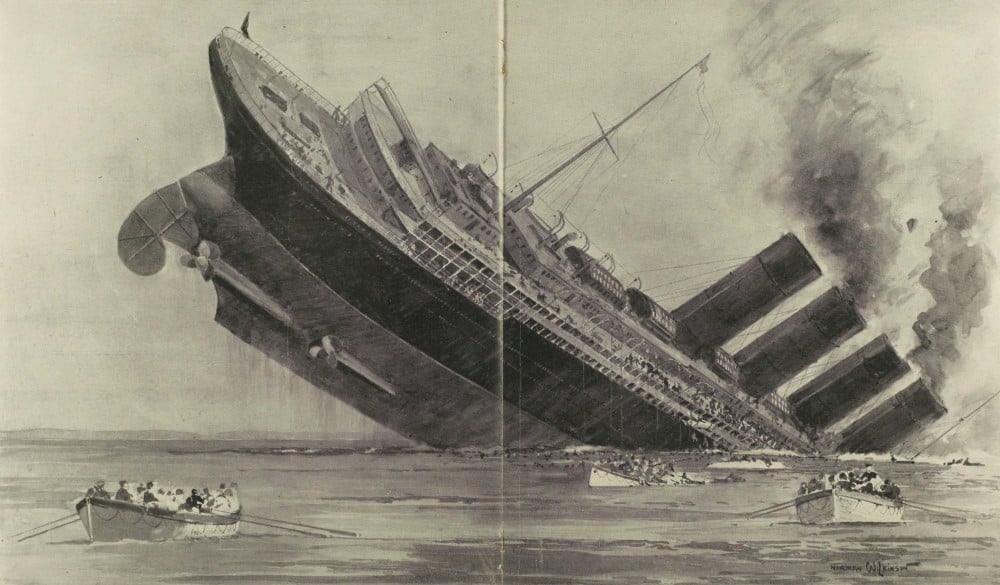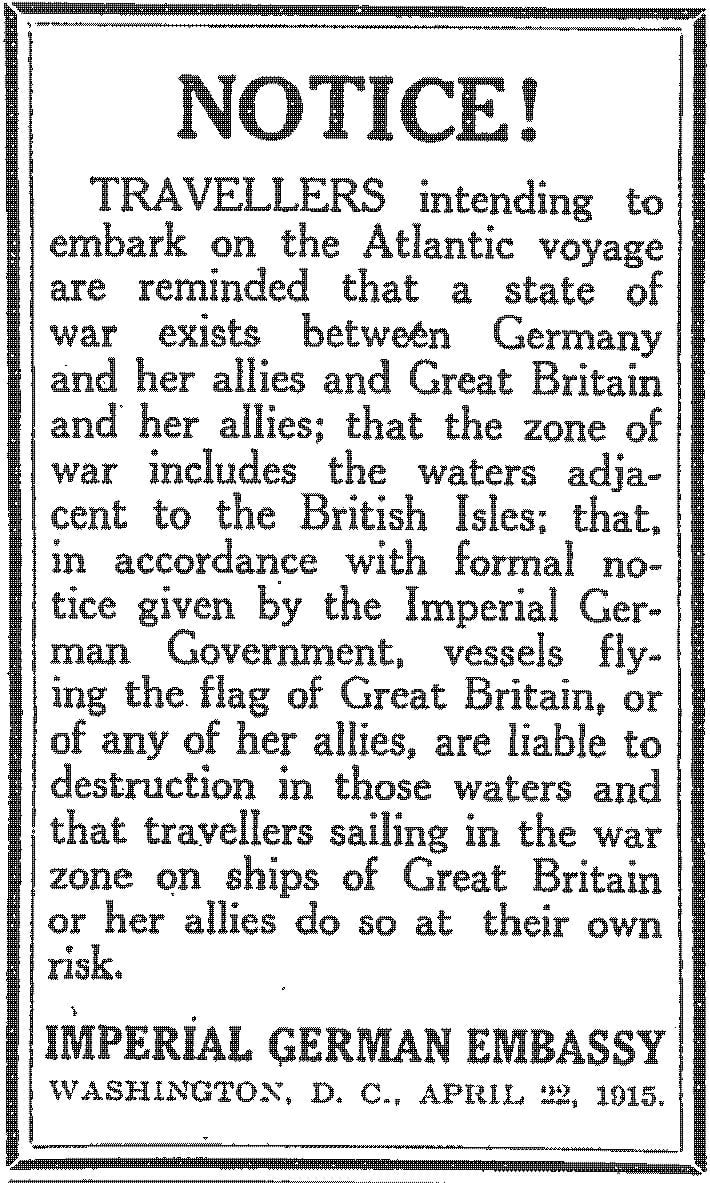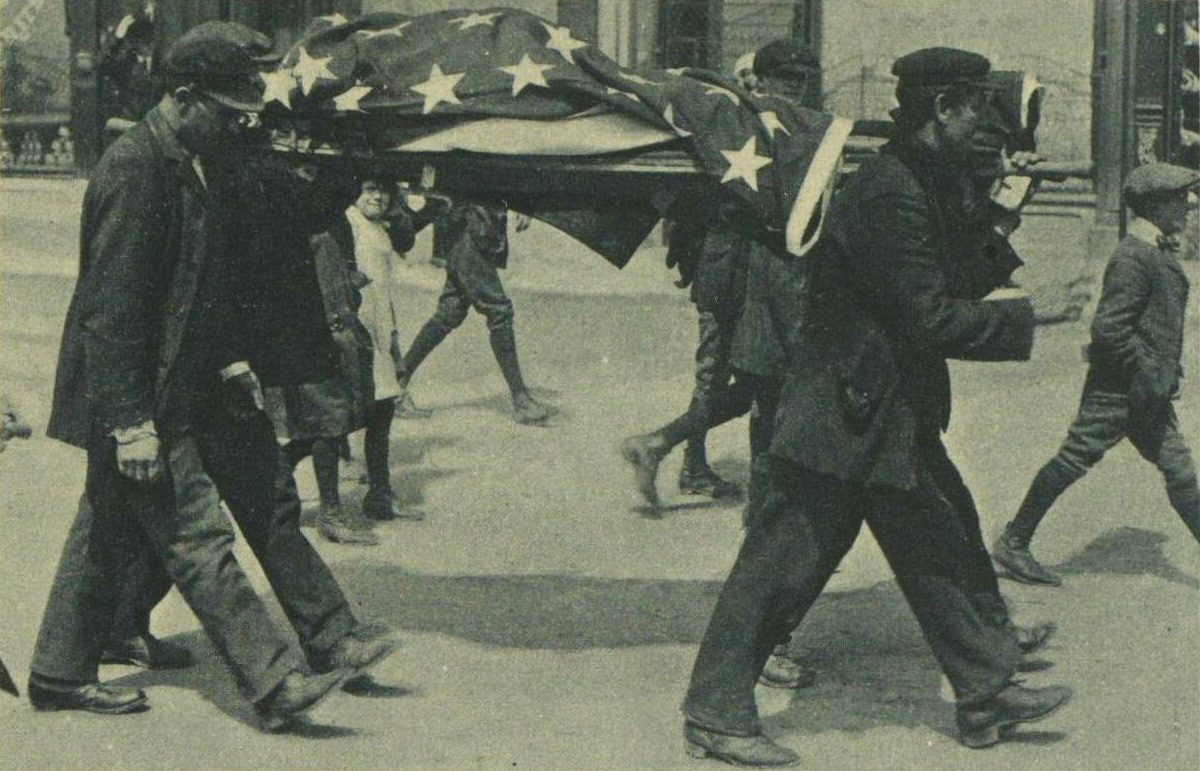Outrage in America at sinking of Lusitania
New York, 15 May 1915 - There has been an outpouring of anger in America at the sinking of the Lusitania by a German submarine.
In a note to the German government, the United States set out a series of outrages committed by German submarines over recent weeks, culminating in the sinking of the Lusitania. These constitute, the note states, ‘a series of events which the Government of the United States has observed with growing concern, distress and amazement’.

The Lusitania sank within 33 minutes of being struck by a torpedo. Although there were enough lifeboats on board for 2,600 people, the speed at which she went down means it is unlikely everyone on board was able to reach safety. (Image: Illustrated London News [London, England], 15 May 1915]
Although some senior politicians in America appealed for calm, others were clear that relations with Germany were disintegrating. The majority of the passengers on the liner were British, but there were more than 100 Americans on board and their loss has drawn expressions of disgust from the American press.
The New York Herald said in an editorial, that the sinking of the Lusitania was a ‘deliberate, cold-blooded, premeditated outrage’ that revealed a ‘disregard of ordinary human sensibilities that makes one turn away sickened as from the work done by the wholesale human butchers of mediæval days’.
German warnings

The warning issued by the Imperial German Embassy on 22 April and published in the New York Times and other American newspapers on 1 May 1915.
In the week prior to the sinking, those same newspapers had carried advertisements sponsored by the German Embassy, reading: ‘Travellers intending to embark for an Atlantic voyage are reminded: that a state of war exists between Germany and her allies, and Great Britain and her allies; that the zone of war includes the waters adjacent to the British Isles; that, in accordance with the formal notice given by the Imperial German Government, vessels flying the flag of Great Britain or any her allies are liable to destruction in those waters; and that travellers sailing in the war zone in ships of Great Britain and her allies do so at their own risk.’
Most had believed the advertisement to be merely a ruse to get Americans to travel on German liners and simply disregarded its warnings.
[Editor's note: This is an article from Century Ireland, a fortnightly online newspaper, written from the perspective of a journalist 100 years ago, based on news reports of the time.]





















